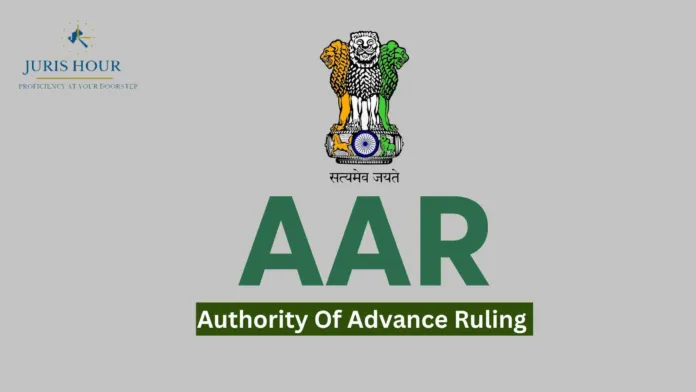The Rajasthan Authority of Advance Ruling (AAR) has ruled that the income tax paid by firms and partners cannot be clubbed for exemption.
The bench of Utkarsha and Dr. Akhedan Charan has observed that the exemption as per Rule 86B(a) is not applicable on the taxpayer. Hence, the restrictions of Rule 86B of the CGST Rule on the use of amount available in electronic credit ledger is applicable on the taxpayer. Thus, the applicant should use the amount available in electronic credit ledger to discharge his liability only up to ninety-nine per cent of total tax liability of the month as their monthly tax liability exceeds Rs. 50 Lakhs and neither the individual partner nor the firm has paid more than Rs. 1 lakh income tax during the last two financial years.
A partnership firm is a tax-paying entity, but its profits are ultimately distributed to partners, either through profit share or remuneration. Income tax is either paid at the firm level or at the partner level, meaning the financial standing of the firm and its partners is interlinked.
Denying the exemption simply because no individual partner paid 21 Lakh contradicts the economic reality of partnership taxation. Under Partnership Act, 1932. A partnership firm is treated as an aggregate of partners, and the firm’s income is ultimately taxed in the hands of partners.
Though a firm and its partners are distinct under the Income Tax Act, 1961, they operate as a single economic unit. Just as companies and their directors are financially assessed together. Partnerships should also be evaluated on a combined tax compliance basis. A partnership firm and its partners are not entirely separate for tax purposes.
The income of a partnership firm ultimately flows to its partners, either through profit distribution or remuneration or interest on capital. If a firm pays substantial income tax, it reflects the financial credibility of the partners as well, since they are the ultimate beneficiaries. If a firm and its partners collectively pay substantial income tax, they are genuine tax-compliant businesses and should not face unnecessary cash restrictions.
Since the firm and its partners are jointly liable for taxation, the total tax paid by all partners together should be considered for exemption and not just the tax paid by a single partner.
The applicant sought the advance ruling on the issue of whether the cumulative tax payment of the firm and its partners can be considered for the exemption under Rule 86B?
Yet another issue raised was whether the firm qualifies for exemption, even if no single partner has paid more than 21 lakh individually?
Rule 86B was enacted to curb fraudulent practices involving fake invoicing and improper ITC utilization. It was never intended to impact genuine businesses who regularly file returns, pay taxes and comply with law.
The AAR held that there is no provision of exemption for such conditions in the said rule where exemption can be considered for total income tax paid by the partners and the firm together.
Ruling Details
Applicant’s Name: Aadinath Agro Industries
Ruling Date: 23/05/2025
Read More: Using Inoperative PAN? Be Ready to Pay Rs. 10,000 for Every Financial Transaction

